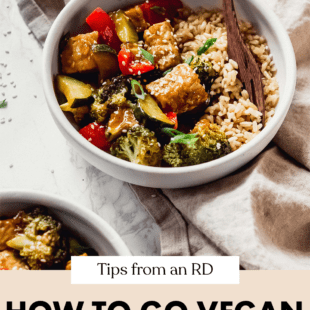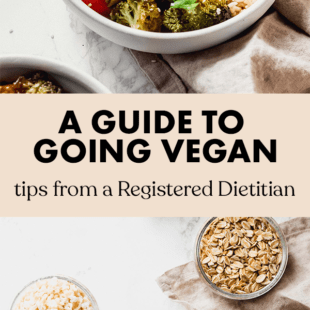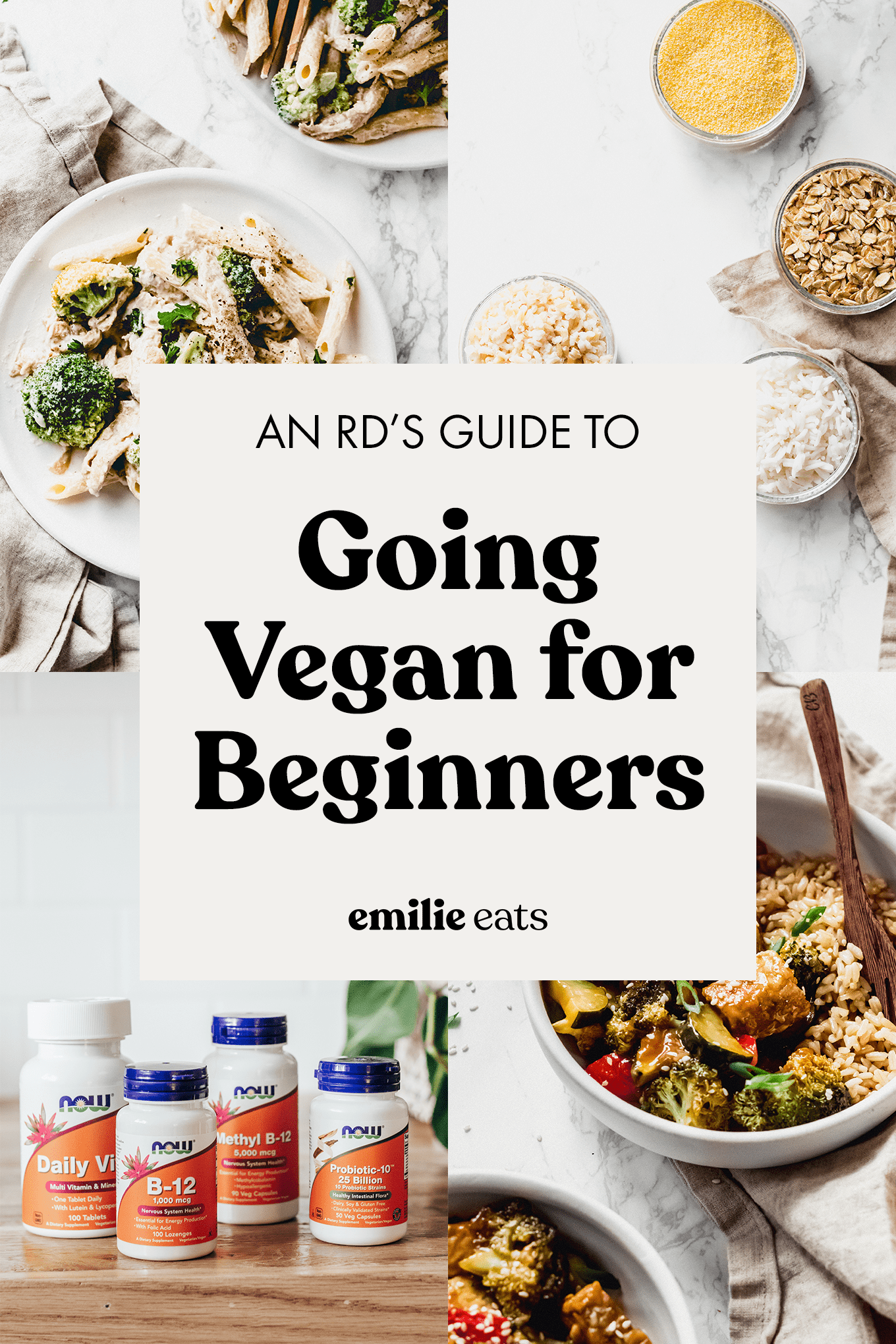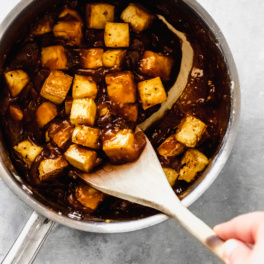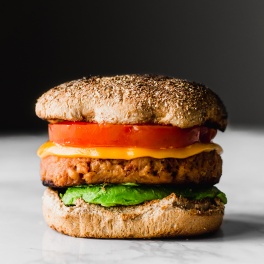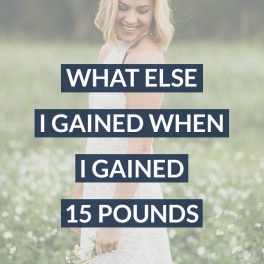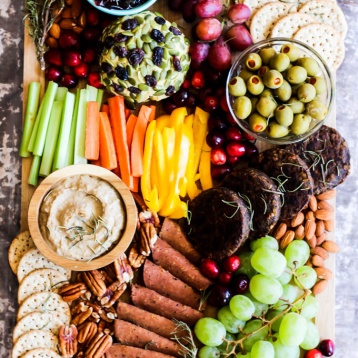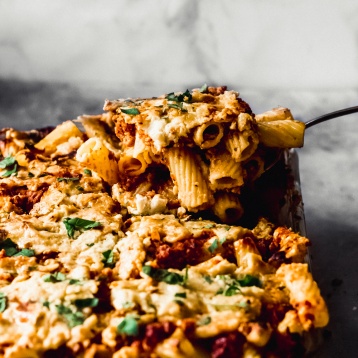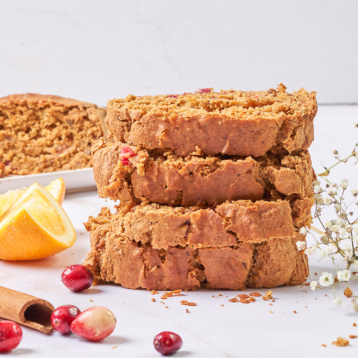If you’re going vegan or trying to eat more plant-based meals, here are 5 nutrition tips on going vegan for beginners, from a registered dietitian.
Vegan Nutrition: A Guide to Going Vegan for Beginners
The new year always attracts more people to going vegan or eating more plant-based meals. However, many of those people won’t have the correct information to make a vegan diet sustainable and healthy (physically and mentally) in their lives.
Today, I’m sharing 5 of the most important nutrition tips on going vegan for beginners. Whether you’re new to veganism or plant-based eating, or if you’ve been eating vegan for awhile, I promise you will learn something new and helpful in this post.
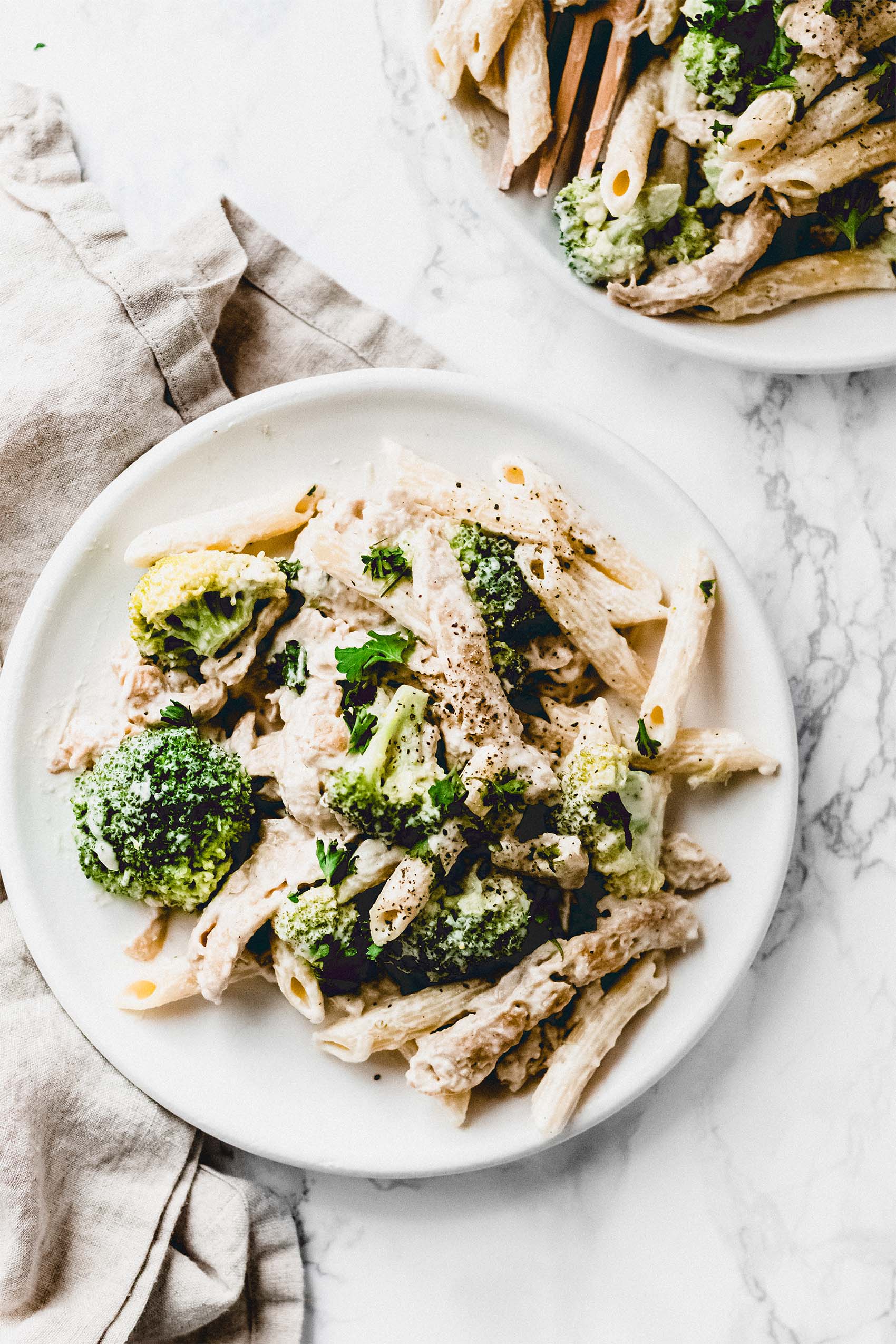
1. Avoid Treating Veganism Like a Diet
Going vegan for beginners oftentimes starts off with health benefits being the main motivating factor. Reminding yourself of animal welfare or the environmental impact of animal agriculture can help you avoid treating veganism like a diet. This will make it more sustainable in your life.
Believe it or not, I actually discourage people from going vegan if their main motivation is for personal health reasons. In my professional experience, I have seen too many people go vegan mainly for “health reasons,” only to ditch it shortly after because it didn’t get them to a goal weight or solve all their health problems (no diet actually works long-term, including vegan-for-health-reasons).
At its core, veganism is NOT a health or weight loss diet. It’s a way of living that aims to reduce harm to animals, people, and the environment. Sure, eating plant-based meals can have health benefits, but if that’s your only motivation for going vegan, you don’t need to be 100% vegan to reap those benefits.
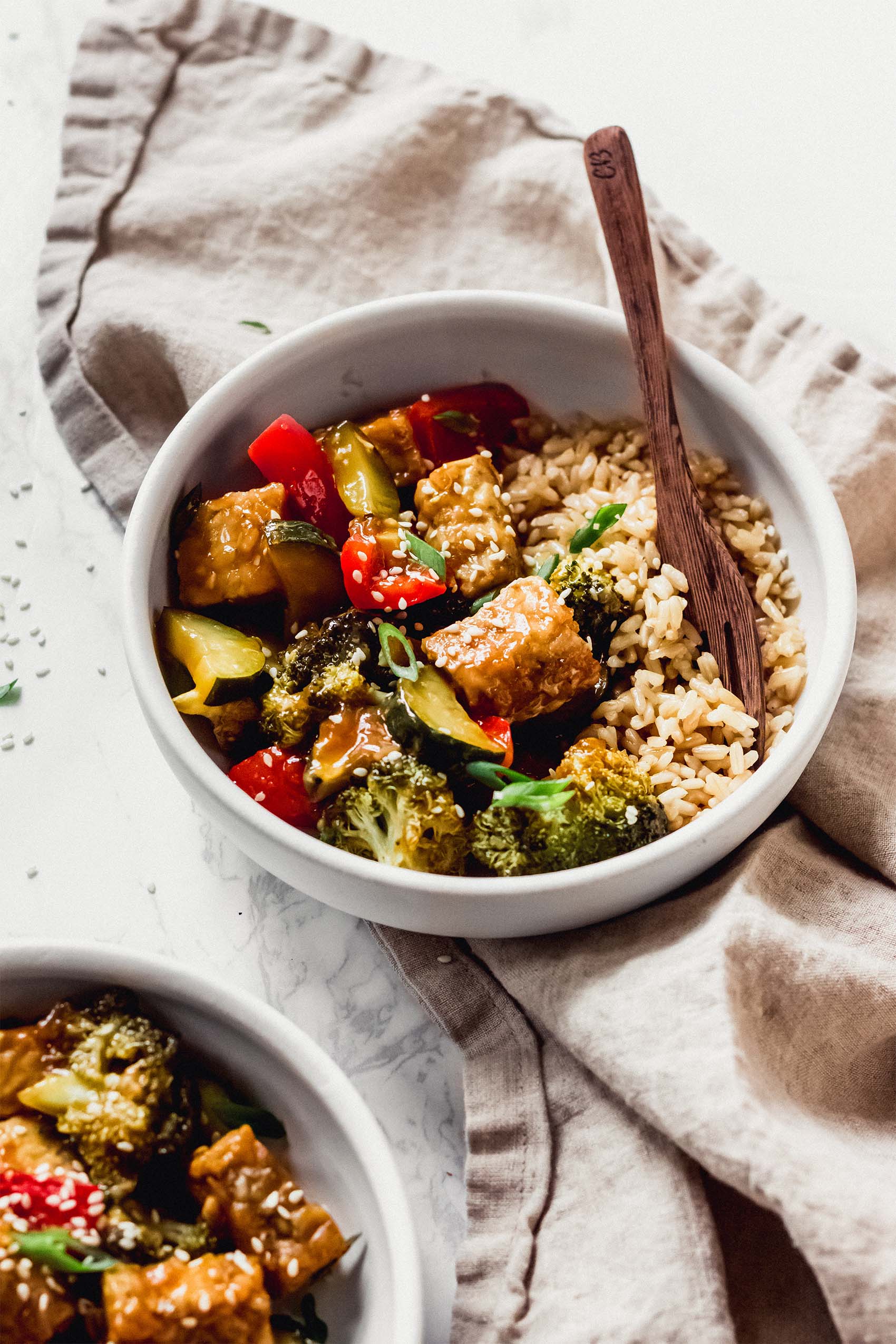
2. How to Build Balanced Vegan Meals
First, let’s talk about meeting your energy needs for the day. One of the most important things about going vegan for beginners to be mindful of is that they’re eating enough. Overall, plant-based foods are less energy-dense than animal foods, which means we need to eat more to adequately fuel ourselves. I’m not one to promote calorie counting or any sort of food tracking, which will likely lead you into a disordered mindset about food. Rather, I encourage you to pay attention to your energy levels and eat every few hours to ensure you’re eating enough.
Next, let’s go through my signature formula for balanced meals:
- Carbohydrate + Protein + Fat + Fiber
- Tortilla + Refried Beans + Vegan Cheese + Sautéed Peppers and Onions
- Toast + Avocado + Tofu Scramble with Spinach and Tomatoes
- Pasta + Vegan Meatballs + Salad with Olive Oil
This formula will help you created balanced vegan meals that are both tasty and satisfying. You don’t need to follow this formula for every single meal. With my nutrition clients, I like to say “most of the time, not all of the time,” because life happens.
Also, don’t fall into the vegan narrative of “low-fat or no fat is better.” I wrote all about healthy fats and how to stop fearing fats here. Fats make food taste better, we need them to absorb nutrients, and they’re good for heart health. Unfollow anyone who says otherwise!
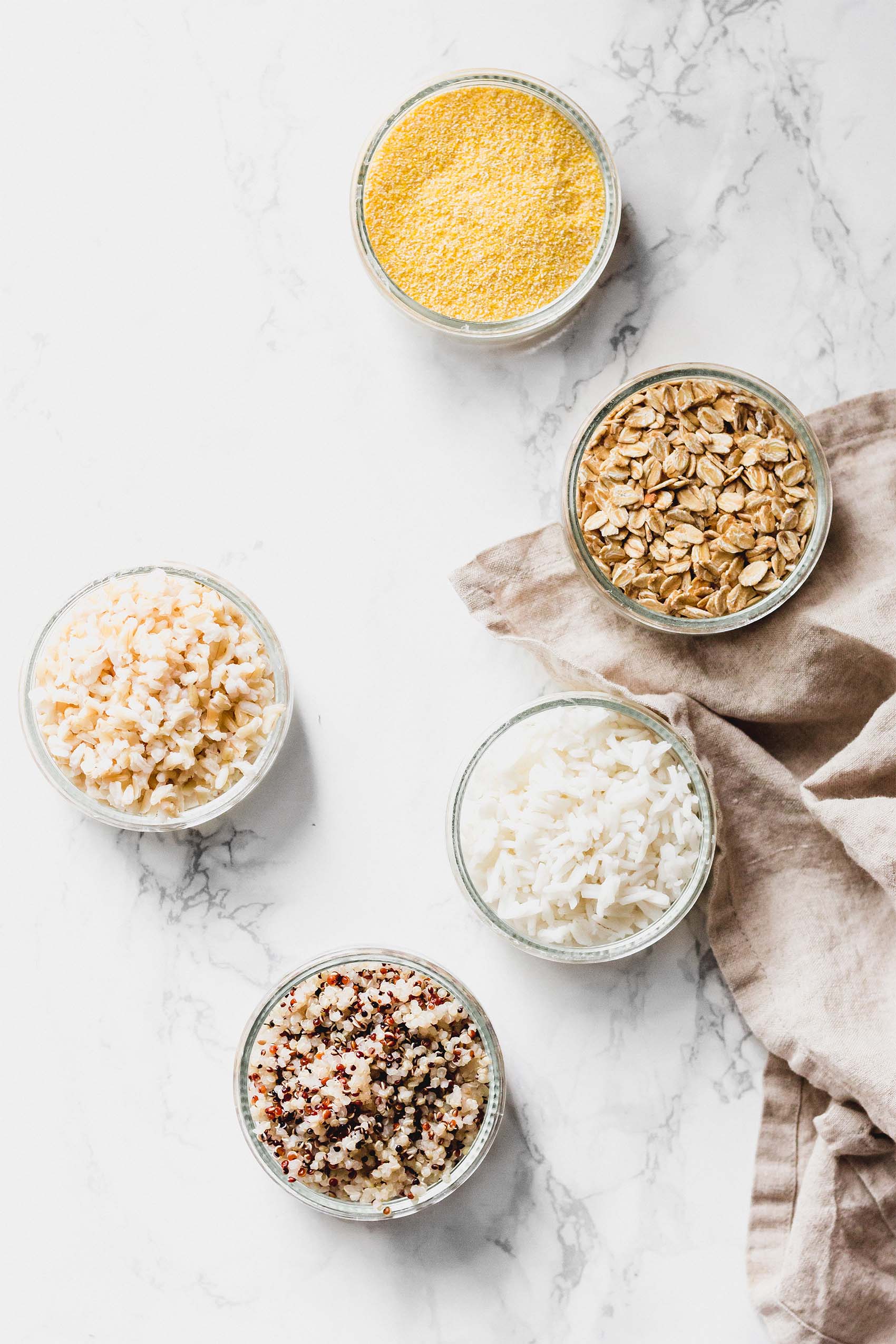
3. Stock Up on Vegan Pantry Staples
The best advice I could give in a guide to going vegan for beginners is to stock your pantry with foods you enjoy. Making sure you have what you need on hand to create tasty, balanced vegan meals and snacks can help you stay satisfied! I encourage you to go through this list of vegan pantry staples to see what you might like. Also, remember that vegan speciality foods (if you have access to them and can afford them) can help you stay satisfied, have fun with food, and avoid a restrictive mindset.
Finally, here’s my brief list of vegan pantry staples:
Protein
- Canned beans (garbanzo, black, pinto, white, refried)
- Dried beans (if you like to cook them from dry)
- Soy curls
Grains
- Rice (white and brown)
- Oatmeal
- Other grains (farro, quinoa, freekah, etc.)
- Pre-cooked grains
- Pasta
- Legume-based pasta (for easy protein-rich meals)
- Rice noodles
- Popcorn kernels
Canned Goods
- Vegan soups
- Canned tomatoes
- Coconut milk
- Curry paste
- Salsa
Oils and Flavorings
- Olive oil
- Sesame oil
- Canola oil
- Balsamic vinegar
- Rice vinegar
- Sriracha
- Soy sauce
- Nutritional yeast
- Sugar
- Maple syrup
- Chocolate chips
- Dates
Flours
- All-purpose flour
- Whole wheat flour
- Chickpea flour
Nuts and Seeds
- Raw cashews
- Nuts (almonds, walnuts, pecans)
- Seeds (chia, flax, sunflower, pumpkin)
- Tahini
- Nut or seed butter
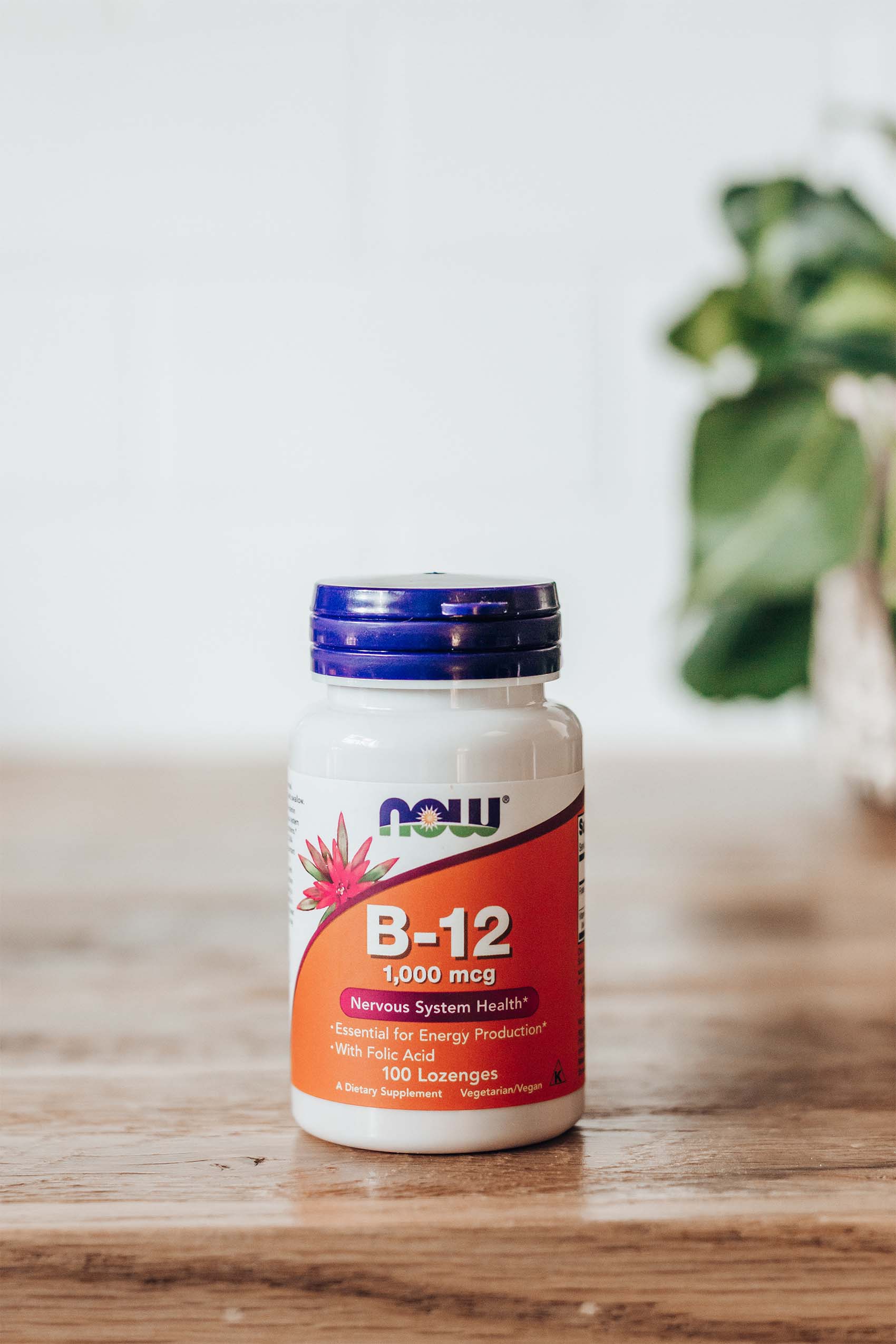
4. Vegan Supplements
Absolutely Need: Vitamin B12
The one supplement you absolutely must take is Vitamin B12, since it is typically found in animal foods. This is the most important advice I can give to anyone looking for a guide to going vegan for beginners. It is essential for the synthesis and function of red blood cells, nerve cells, and DNA. Moreover, Vitamin B12 deficiency can manifest as:
- Macrocytic anemia (different than iron-deficiency anemia)
- Numbness or tingling in the extremities
- Memory loss
- Difficulty with cognitive functions
- Fatigue
Also, long-term Vitamin B12 deficiency can lead to negative neurological effects. By then, it is too late to reverse the deficiency. All in all, skipping a Vitamin B12 supplement is not something you want to do. (And, no, food sources of Vitamin B12 are not reliable). To determine appropriate dosage, I recommend consulting with a doctor or registered dietitian, and reading these Vitamin B12 recommendations by Vegan Health.
May Need: Vitamin D and Omega-3
The two more supplements I would put on my “probably a good idea for most vegans” list are Vitamin D and Omega-3.
First, let’s talk about Vitamin D. We can get Vitamin D from sun exposure, but that increases our skin cancer risk. Vitamin D is especially important for those who live in colder climates and those who have darker skin, since melanin can interfere with vitamin D synthesis.
If you’re shopping for a vegan Vitamin D supplement, you’ll notice two forms: D2 and D3. Vitamin D2 is typically vegan, and Vitamin D3 is typically made from animal sources (like lanolin). The form D3 may be slightly more effective at raising and maintaining healthy Vitamin D levels. I like Deva brand supplements; they carry a vegan Vitamin D2 and a vegan Vitamin D3. Consult a doctor or registered dietitian for dosage, and read these Vitamin D recommendations by Vegan Health.
Next, let’s discuss Omega-3. There are three main Omega-3 fatty acids: ALA, EPA, and DHA. Vegans can fairly easily (with planning) meet the recommendation for ALA through foods like chia seeds, flaxseeds, walnuts, soy, and canola oil. If you’re meeting the ALA recommendation, your body will likely make enough EPA. However, research is still mixed on if vegans should supplement extra DHA, since the ALA –> DHA conversion rate is quite low.
If you’d like to supplement Omega-3 out of extra caution, Vegan Health recommends 200-300 mg of DHA per day (you can read their full Omega-3 recommendations here). You’ll want to look for an Omega-3 supplement made of algae versus fish.
Other Potential Supplements: Iodine, Iron, and Calcium
Other potential vegan supplements to consider are iodine, iron, and calcium.
- Iodine: Instead of a supplement, make sure to use iodized salt.
- Iron: Your doctor or registered dietitian may recommend an iron supplement based on blood work or other factors. For example, someone with heavy menstrual periods may need an iron supplement.
- Calcium: Eating calcium-rich foods like calcium-fortified non-dairy milk (I drink a cup a day as a “supplement”), leafy greens, and calcium-set tofu can help you meet your calcium needs. However, if you are having difficulty meeting these needs or have higher calcium requirements, your doctor or registered dietitian may recommend a calcium supplement.

5. Work With a Vegan Dietitian
Going vegan or trying to eat more plant based poses specific nutrition challenges. The best way to seek out guidance on going vegan for beginners is to work with a professional. Working with a vegan registered dietitian (like myself!) can help you figure out a way of eating that feels best for your body. Also, a dietitian can also help you avoid falling into a restrictive or disordered mindset with food. In my experience, this is common in those who decide to go vegan.
All in all, working with a dietitian who specializes in vegan nutrition will assure you that you’re meeting your nutritional needs and creating a way of eating that is sustainable for your own life.
I’m accepting 1-on-1 nutrition clients! Click here to learn more about how I can support you in ditching diet culture, letting go of food guilt, and learning how to respect your body.

